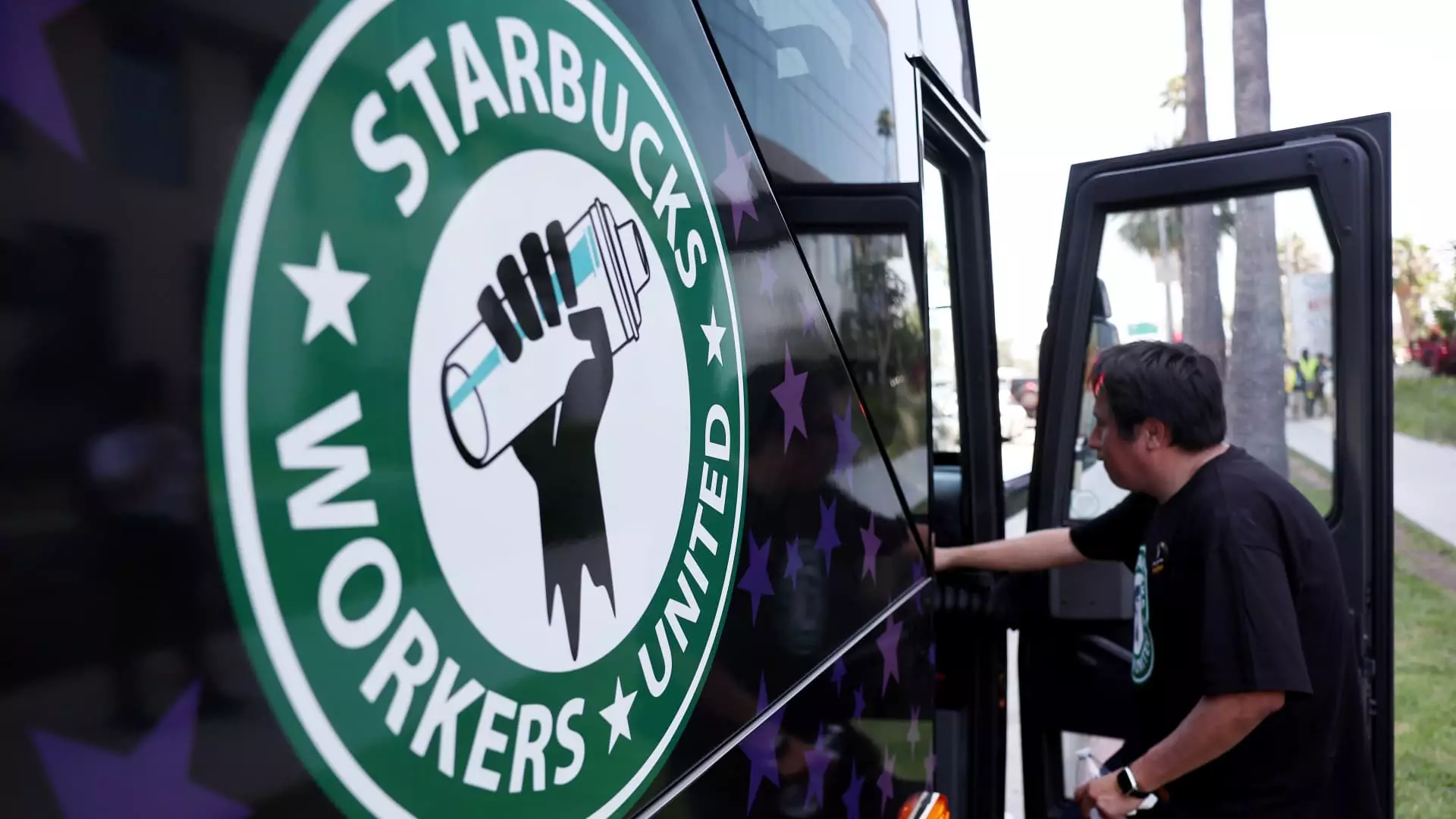In a significant development for labor relations within one of the world’s most recognized coffee chains, Starbucks Workers United announced that an overwhelming 98% of its unionized baristas have voted to authorize a strike. This decision underscores ongoing frustrations over a lack of progress in contract negotiations with Starbucks Corporation. As the bargaining delegates prepare to resume discussions, there is an urgent push to establish a comprehensive contract that addresses critical employee concerns, including wages and benefits.
This marks the latest chapter in a protracted negotiation saga that has unfolded over the past year. Despite dedicating extensive hours to bargaining discussions and presenting multiple tentative agreements, Starbucks Workers United asserts that essential issues remain unresolved. The union argues that a significant number of unfair labor practice complaints are still pending—elements of concern that fuel sentiments among baristas regarding the company’s commitment to fair labor practices. Starbucks, on the other hand, emphasizes its dedication to finding a mutually satisfactory agreement, claiming that numerous constructive talks have taken place throughout the year.
A public statement from Starbucks captured the company’s discontent with the union’s decision to consider a strike rather than focusing on negotiations deemed productive. The company highlights the numerous agreements reached on economic issues that the union identified as priorities, illustrating its willingness to engage. However, the sentiments from baristas suggest a growing impatience, particularly about the perceived inadequacies in the wage adjustments and overall benefits offered in relation to the rising cost of living.
The vote to authorize a strike is a powerful symbol of the employees’ collective frustration. It also reveals a significant cooling in relations that had initially improved after a constructive mediation effort in February. This pattern raises alarm bells not only for management at Starbucks but also for consumers who have supported the brand through its unionization efforts. As more than 500 Starbucks locations have voted to unionize in recent years, the implications of a labor dispute could reverberate significantly, impacting both employee morale and brand loyalty.
New leadership at Starbucks under CEO Brian Niccol has also influenced the dialogue surrounding labor relations. His recent announcement to enhance parental leave could be seen as a positive step, yet it contrasts sharply with reports indicating that baristas may face smaller annual pay increases than in years past, particularly in light of declining sales in U.S. stores. This juxtaposition raises critical questions about the company’s priorities and its long-term strategy regarding labor relations amidst a shifting economic landscape.
As negotiations continue, the divide between Starbucks and its employees seems to be widening. The looming threat of a strike casts a shadow over the company’s operations, signaling a critical moment for both parties. With workers demanding fair treatment and representation, it remains to be seen how Starbucks will respond and whether a resolution that meets the needs of its baristas can be achieved. Ultimately, the way forward will not only determine the future of labor relations within Starbucks but could also pave the way for similar movements across the retail and food service industries.

